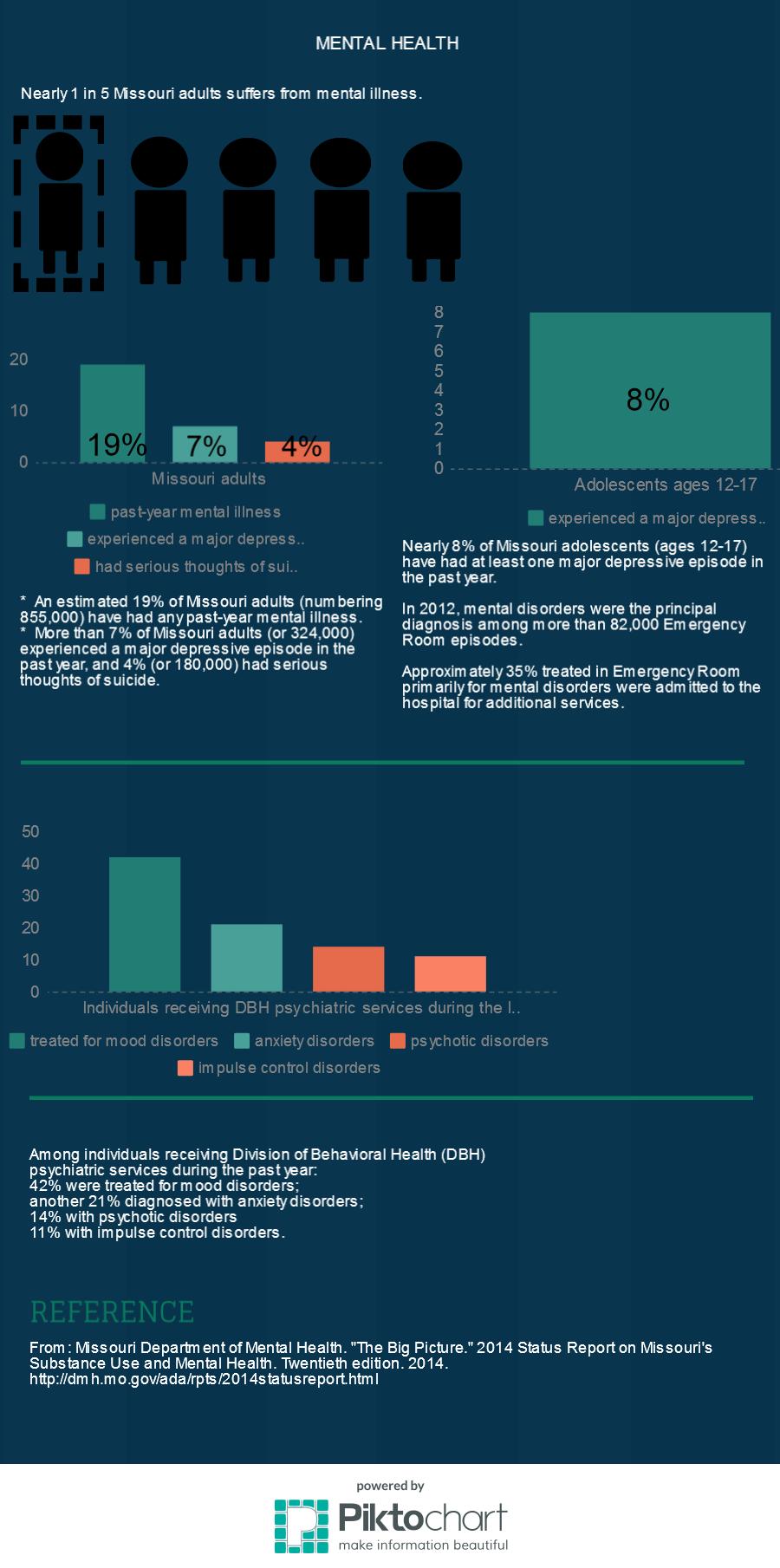Libraries’ needs for mental health training resources may be varied. However, one of the first things public libraries can do is familiarize their staff with some general information resources they can utilize independently that do not require a large investment of time or money. From a simple tip sheet that can be printed and handed out to employees or discreetly posted at public service desks to a list of the top myths about mental illness to more in-depth live training these resources should provide libraries with a variety of training opportunities and methods.
- Training Tools
- Librarian411.org 1
This free online training website is designed specifically to help Missouri front-line library staff better serve those with mental health issues or illness. Training materials include videos, links to additional resources, and requestable mental health awareness kits, DVDs, and a live workshop.
- Mental Health First Aid 2
Understanding that mental illness is “real, common, and treatable” is the first step to helping and interacting with people with mental illness. Mental Health First Aid is an in-person live training program designed to help people remove their fear and misunderstanding of mental illness and train them to offer assistance.
- Mental Health First Aid in Missouri 3 http://mhfamissouri.org/
- Mental Health Crisis Training Courses 4
(these are offered throughout Missouri) http://www.mentalhealthfirstaid.org/cs/take-a-course/
- Mental Health First Aid USA for Library Staff 5
Mental Health First Aid courses can cost on average from $25-$170 per person for up to 30 attendees. If cost is a concern for your library, this online video, Mental Health First Aid USA for Library Staff, can provide you with some practical skills you can utilize in the workplace.
- Bring Change 2 Mind 6
Bring Change 2 Mind believes that “one of the best ways you can help someone with mental illness is by understanding what it is – and what it isn’t.” The resources on this site include videos, websites, and reading material and provide education, advocacy, and guidance for those with mental health issues and those that want to help people with mental health issues.
- People with Mental Health Issues: What You Need to Know 7
Association of Specialized and Cooperative Library Agencies (2010), People with Mental Health Issues: What You Need to Know Library Accessibility Tip Sheet 7
This tip sheet includes things library staff can do to make their library more accessible to people with mental health issues. It provides simple reminders to library staff about assisting people with mental health issues in a professional manner and provides a short list of some of the most important mental health web resources.
- Dispelling Myths 8
This list of myths and facts aims to address common misconceptions about mental illness.
- What Libraries are Doing
- Library Collaboration 9
Taking advantage of funding from the National Network of Libraries of Medicine (NN/LM) Middle Atlantic Region (MAR) for libraries involved in mental health needs, The Commonwealth Medical College Medical Library collaborated with the Lackawanna County Library System to develop better-trained library staff and increase awareness of mental health information, services, and resources. This article describes the experience of this multi-type library collaboration.
- Mental Health Literacy 10
After attending a workshop on the role of the library in mental health literacy, Josh Berk left the workshop with one important piece of information: the phone number to the county mental health office. Recommending that every public library make a call to their own county mental health office, Berk discusses some of the valuable information he learned and how he was able to use this information to help make his library staff a little more relaxed around patrons exhibiting signs of mental illness.
- Partnering with Health Department 11
When an increase of incidents with patrons suffering from mental illness forced the Pima County Public Library to begin looking for better ways to serve these patrons, they found their answer at a workshop hosted by the San Francisco Public Library (SFPL). Inspired by the partnership between SFPL and the San Francisco Department of Public Health that allowed SFPL to hire a social worker, Pima County set out to also find a way to partner with their own health department to make a significant change in how they addressed patrons with critical needs. This article discusses how Pima County Public Library decided a public health nurse would better fit their needs, how they went about hiring one, and how their Library Nurse Program has evolved and the impact it has had.
- Social Workers in the Library 12
The following three articles follow the progression of a collaboration between Encinitas Library in San Diego County and the San Diego State University School of Social Work called Social Workers in the Library (SWITL). The first article discusses the pre-implementation phase of the program that placed social work students in the library to offer, among other things, mental health information and services. The second article is a blog post by the intern who was tasked with creating the pilot program. The last article discusses the launch of the initiative on February 24, 2015.
Sometimes getting a program started to address the needs of library patrons with mental health issues can be difficult. The following list of articles highlights how some public libraries have implemented programs through cross-sector collaborative efforts.

